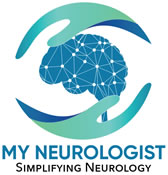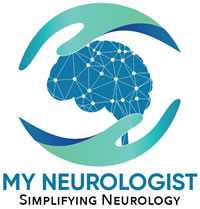What is aphasia?
Aphasia is a disorder of language, which is different from a disorder of speech. Problems with language imply a brain malfunction, while a problem with speech a malfunction of nerves and muscles. A patient with aphasia may not be able to say or understand a word, while a patient with dysarthria (a disorder of speech) can say whatever is intended but in a slurred manner.
What is the cause of aphasia?
Aphasia is caused by damage or malfunction of a part of brain.
What are different types of aphasia?
Due to complex nature of language function, which can be divided in multiple parts, aphasia is divided in multiple types. Following are some common types:
A: Broca’s Aphasia: It is when patient has difficulty with syntax (the manner of putting linguistic elements together to make a sentence or convey a message). In severe cases, the patient may utter a single or very few words or may not be able to come up with any word at all. More commonly, sentences are reduced to fewer words with missing verbs or associated elements. It is caused by damage to the left side of brain, usually involving the frontal lobe.
B: Wernicke Aphasia: It is when patient has difficulty comprehending words and sentences. Patient may speak but the words and sentences may not make appropriate sense. It is caused by damage to the left side of brain including part of temporal and parietal lobes.
C: Conduction Aphasia: It is when patient has selective difficulty of repeating a statement but can otherwise comprehend and speak. It is caused by damage to an area of left side of brain, the posterior superior temporal gyrus.
D: Anomic Aphasia: It is when a patient has selective difficulty naming different objects. It is caused by damage to the left side of brain somewhat like the areas involved in Wernicke’s aphasia.
E: Transcortical Aphasia: This is further divided into transcortical motor and transcortical sensory aphasias. In transcortical motor aphasia patient seems to have severe motor or Broca’s type aphasia but if presented a picture to describe, there may not be any hesitation with its description. It is caused by damage to the left frontal lobe. The transcortical sensory aphasia is somewhat like Wernicke’s aphasia. Its main feature is semantic paraphasic error, replacing a similar concept word, e.g., one type of fruit with another.
What are different causes of aphasias?
- Stroke: It presents with sudden onset.
- Trauma: Is confirmed by h/o of brain trauma.
- Dementia: It is slowly progressive
- Tumor
- Infection
- Multiple sclerosis
What is the treatment for aphasia?
There is no known specific treatment. Speech therapy may provide limited help. Some patients can be helped by technology or computer assisted rehab.
Where can I find more information about aphasia?


Leave a Reply
Your email is safe with us.
You must be logged in to post a comment.